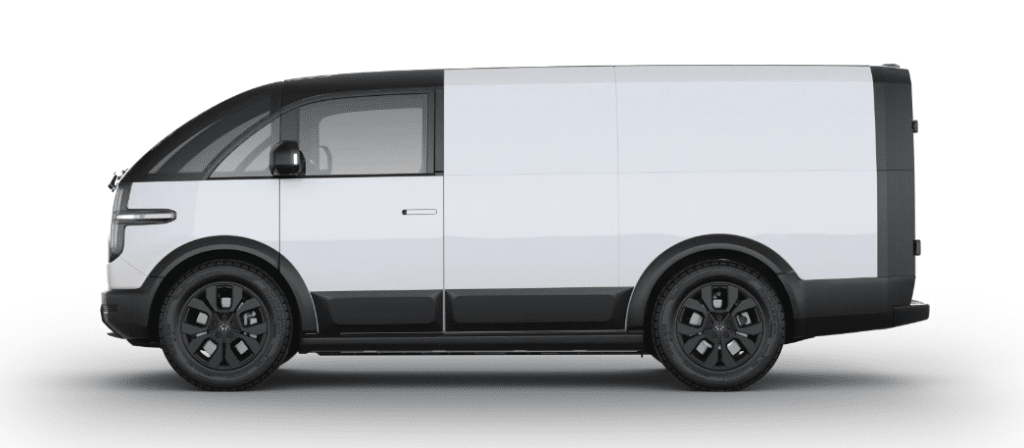Canoo Still Struggling, Lays off 82 Workers, Idles Production
Starting a car company is notoriously difficult, and history has shown that very few manufacturers make it to mass production. The electric vehicle (EV) space, in particular, has seen its fair share of failed startups, such as Fisker, Dyson, Bright, Coda, Detroit Electric, Lordstown, Sono Motors, and Think Global. While companies like Rivian and Lucid have faced challenges, they continue to move forward.
Canoo, the electric vehicle (EV) startup, is facing severe financial difficulties as it furloughs 82 employees and halts production at its Oklahoma factory. The company is struggling to secure the capital necessary for its survival and is reportedly in “advanced discussions with various capital sources” to raise emergency funds. This move follows a series of troubling events for the company, including the resignation of board member James Chen and the departure of key executives, such as the CFO and head lawyer, within the past month.
Canoo has been under financial strain throughout the year, enduring multiple rounds of layoffs, furloughs, and even closing its Los Angeles headquarters. The company also faces several lawsuits from suppliers due to delayed payments. In terms of production, Canoo has delivered electric vans to NASA, USPS, Walmart, and the Department of Defense for testing purposes, but has struggled to scale up manufacturing for additional commercial customers.
The company’s statement expressed regret over the furloughs, particularly around the holiday season, but emphasized that this was a necessary step to address its financial challenges. CEO Tony Aquila’s venture firm has been keeping the company afloat with loans, but the company’s future remains uncertain as it continues to grapple with these ongoing issues.

Canoo is an electric vehicle (EV) startup founded in 2017 with the goal of transforming the automotive industry through innovative and sustainable vehicles. Based in Torrance, California, the company aims to offer a unique approach to electric mobility, focusing on flexible, modular platforms that can be adapted to a variety of vehicle types and uses. Canoo’s product lineup includes the Canoo Electric Van, designed primarily for commercial and fleet services, and the Canoo Lifestyle Vehicle, which is a consumer-oriented EV with a spacious and futuristic design.
Despite its promising concepts, Canoo has faced significant financial struggles. The company has experienced multiple rounds of layoffs and furloughs, as well as a string of executive departures, including its chief financial officer and chief technology officer. The company also closed its Los Angeles office, which had served as its headquarters, and is grappling with lawsuits from suppliers due to delayed payments. Canoo went public in 2020 through a reverse merger with a special purpose acquisition company (SPAC), but its stock performance has been volatile since then, and it has had difficulty scaling production to meet its ambitious goals.
In early November of the year, Canoo laid off 30 employees, roughly 23% of its workforce at the Oklahoma City plant, for a reported 12-week period. CEO Tony Aquila stated that the layoffs were part of a broader realignment of the company’s North American operations, emphasizing that Canoo would be adding jobs in Oklahoma, as well as engineering roles. The company also operates a battery module plant in Pryor, Oklahoma, and additional facilities in Texas. However, the company’s financial instability, compounded by a less favorable political environment and shifting EV policies under the incoming administration, leaves Canoo’s long-term prospects uncertain.
According to Canoo’s April 2024 earnings, the struggling EV startup spent $1.7 million on private jet reimbursements for CEO Tony Aquila in 2023, against the $886,000 in revenue the company generated that year. $1.3 million in 2022 and $1.8 million in 2021 was paid to Aquila Family Ventures for the jet hires, a company owned by the CEO.
The company’s manufacturing efforts have been challenged by supply chain issues, and it has struggled to bring its vehicles to market in large numbers. Canoo has not been able to ramp up production for broader commercial sales. At present, Canoo is trying to secure emergency funding to stay afloat, with financial backing from a venture firm run by its CEO, Tony Aquila. Despite the hurdles, Canoo continues to push forward with its vision, but its future remains uncertain as it navigates its financial difficulties and production challenges.
